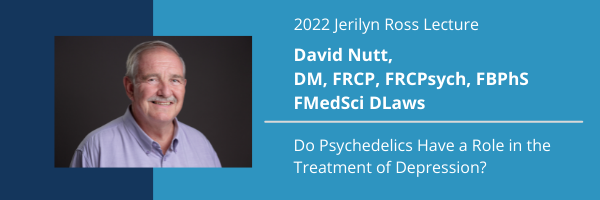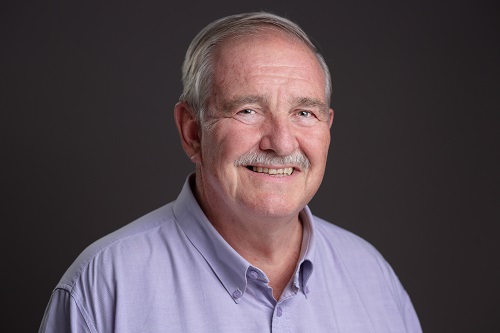Register Now
Do Psychedelics Have a Role in the Treatment of Depression?
Friday, March 18th 3:00 pm - 4:00 pm - LIVE!

Neuroimaging studies have shown that psychedelic drugs such as psilocybin can disrupt the brain circuits that are involved in depression and clinical data from other groups support this idea.
We conducted two trials of psilocybin – a 25 mg psychedelic dose – in patients with depression.
The first in treatment-resistant patients found a profound effect of a single dose to reduce symptoms.
The second was a 6 week comparative study in major depression between two doses of psilocybin 25mg for 3 weeks followed by placebo and two doses of 1mf psilocybin 3 weeks apart followed by escitalopram 10-20mg/d so each group got the same psychotherapy.
Both groups show good clinical outcomes and these generally favoured psilocybin with no differences in adverse effects. Brain imaging data was also collected and revealed a different pattern of response in the two groups.
The implication of these and others clinical findings will be discussed.
Learning Objectives:
- To understand the psychopharmacology of psychedelics on brain function
- To gain knowledge of the growing research evidence for clinical benefit of psychedelics especially psilocybin
- To explore comparative efficacy and adverse effects of psilocybin as compared with the SSRI escitalopram
Resources:
- http://en.wikipedia.org/wiki/David_Nutt
- http://www.sciencemag.org/content/343/6170/478.full
- http://www1.imperial.ac.uk/departmentofmedicine/divisions/brainsciences/psychopharmacology
About the 2022 Jerilyn Ross Lecturer David Nutt, FMedSci + −
David Nutt is a psychiatrist and the Edmond J. Safra Professor of Neuropsychopharmacology in the Division of Brain Science, Dept of Medicine, Hammersmith Hospital, Imperial College London. His research area is psychopharmacology - the study of the effects of drugs on the brain, from the perspectives of both how drug treatments in psychiatry and neurology work, and why people use and become addicted to some drugs such as alcohol. To study the effects of drugs in the brain he uses state of the art techniques such as brain imaging with PET and fMRI plus EEG and MEG. This research output has led to over 500 original research papers and a similar number of reviews and book chapters, eight government reports on drugs, and 35 books, including one for the general public, Drugs: without the hot air, that won the Transmission Prize in 2014.
He was previously President of the European Brain Council, the British Association of Psychopharmacology, the British Neuroscience Association, and the European College of Neuropsychopharmacology. He is currently Founding Chair of DrugScience.org.uk and holds visiting Professorships at the Open University and University of Maastricht.
David broadcasts widely to the general public both on radio and television. In 2010 The Times Eureka science magazine voted him one of the 100 most important figures in British Science, and the only psychiatrist in the list. In 2013 he was awarded the John Maddox Prize from Nature/Sense about Science for standing up for science and in 2017 a Doctor of Laws hon causa from the University of Bath.






